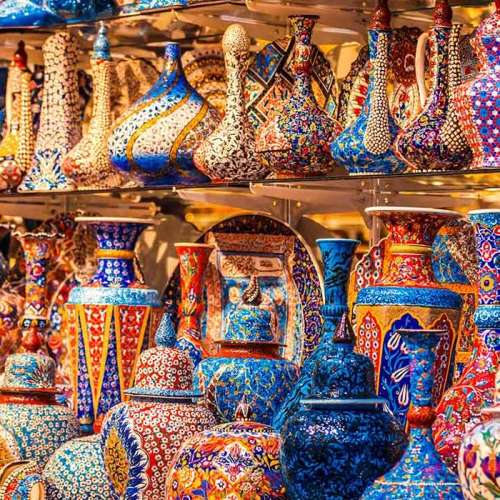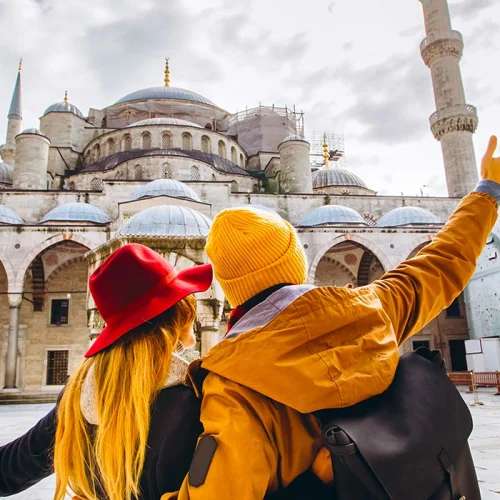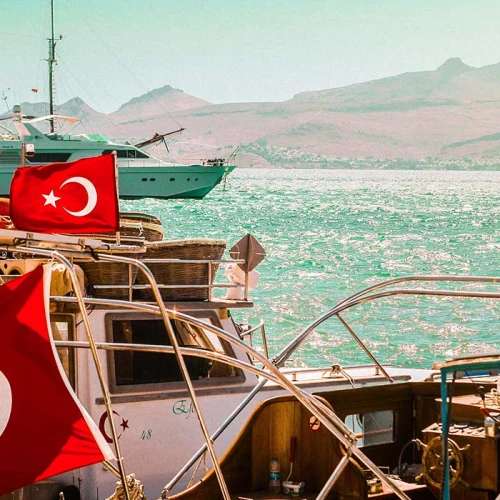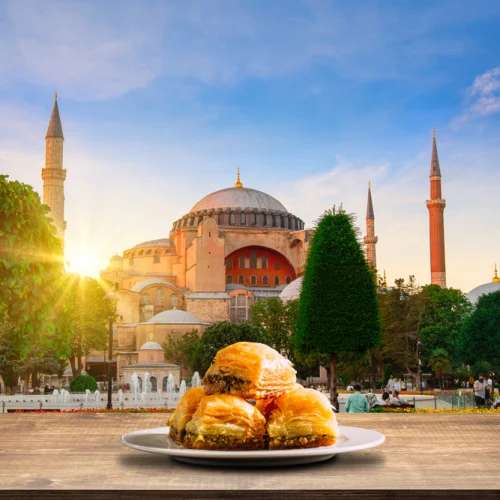Turkey in Easter: Unravel the Festive Magic in Famous Destinations

Amidst a country rich with history and cultural diversity, Easter—or "paskalya yortusu" as it is known in Turkey—emerges as a compelling tapestry of tradition and celebration, notably within the Christian communities. Although not a national holiday, the Christian minority in Turkey, including Armenians, Greeks, and Syriacs, enliven the festive spirit over four days marked by intricate egg decorating, church services, and convivial gatherings. This fusion of religious observance and familial warmth captures the essence of Turkey in Easter, a time emphasizing coexistence, interfaith harmony, and peace.
The essence of this article is to explore the rich tapestry of Easter in Turkey, navigating through the country’s Easter customs, delicacies, and historic sites that bear witness to its vast Christian heritage. How Easter traditions in Istanbul intertwine with the city's rhythm, and the top places to visit in Turkey during this season, will unravel a realm where global narratives connect with local festivities. Readers are invited on this journey to uncover how traditions are kept alive by a vibrant community and to discover the vibrant Easter markets that add to the festive charm.

Easter Traditions in Turkey
In the heart of Turkey, Easter traditions flourish among the Christian minority, creating a vibrant mosaic of cultural heritage. The observance of Easter, or "paskalya," is embraced with a fervor that reflects the community's dedication to their faith and customs.
-
Festive Feasts: Central to the Easter celebration is the gathering of families and friends around the dining table, where dishes steeped in symbolism are shared. The lamb is a staple, representing the sacrificial Lamb of God, while red-dyed boiled eggs, signifying the blood of Christ and rebirth, are eagerly hunted by children, a tradition that mirrors the practices of many Western countries.
-
Sweet Delicacies: The Turkish Easter table also boasts unique confections, such as paskalya çöreği, a sweet bread that, alongside hot cross buns, carries historical ties to the Crucifixion. Other local delights include Şeftali Böreği, a sesame seed-topped bread believed to repel evil spirits, and the Easter Sweet Bread, a soupy bread savored at both breakfast and dinner.
-
Cultural Rituals: The rich tapestry of Easter in Turkey is further adorned by the diverse customs of its Armenian, Greek, and Syriac Orthodox communities. Each group brings its unique traditions to the forefront, from attending church services that recount the resurrection story to engaging in community gatherings where eggs, donuts, and rice pudding are offered. In particular, the blended cultural rituals at Surp Hıreşdağabet Church stand out, showcasing an open altar and a fusion of practices that contribute to the richness of Easter celebrations in Turkey.
The Christian communities in Turkey, though a minority, uphold their Easter traditions with a warm embrace, showcasing a confluence of faith and cultural identity that enriches the festive season.

Visiting Historic Christian Sites
Turkey's Easter celebrations are further enriched by the opportunity to visit historic Christian sites, each telling a story of the faith's profound history within the nation. Here are some of the top places to visit in Turkey during Easter:
-
Ephesus and the House of the Virgin Mary: A pilgrimage to Ephesus is a journey through ancient Christian history, where the Apostle Paul once preached. Nearby, the House of the Virgin Mary, a sacred shrine, is believed to be where Mary spent her final days. Easter services at this serene location allow visitors to reflect amidst the whispers of early Christianity.
-
Cappadocia's Cave Churches: The lunar-like landscape of Cappadocia hides within its folds cave churches, resplendent with Byzantine frescoes that often depict scenes related to Easter. These frescoes serve as a visual sermon of the Passion and Resurrection, inviting onlookers into a contemplative experience.
-
Istanbul's Ecclesiastical Heritage: In Istanbul, the Church of St. Anthony of Padua and the Agia Triada Taksim are just two of the over 110 Armenian and Greek Orthodox churches that host Easter Mass. These churches, with their ornate architecture and vibrant communities, are the heart of Easter in Istanbul, exemplifying the city's rich Christian legacy.
Visitors to these sites during Turkey in Easter are not only witnessing the beauty of ancient traditions but are also participating in a living history that continues to shape the spiritual landscape of the country.

Local Easter Events and Celebrations
In the vibrant city of Istanbul, the "Agony of Christ" procession in Sultanahmet stands out as a profound testament to the city's Easter traditions. This solemn procession, along with special church services, captures the reverence of the season, inviting both local and international visitors to participate in a shared experience of faith and reflection. Celebrating Easter in Turkey is not just confined to liturgical observances but extends to a communal expression of unity and tradition.
While Easter celebrations are predominantly observed in areas with significant Christian communities, such as Istanbul and Bodrum, the spirit of the season permeates throughout the country. The festivities are a colorful journey that brings together individuals of diverse backgrounds, with even non-Christian communities partaking in the spring festival of Nevruz, which shares similar themes of renewal and hope. This inclusive approach to Easter underscores Turkey's rich tapestry of cultural intermingling, as documented in the various accounts of Easter in Istanbul.
Public Easter events and services are organized by various churches and communities, offering a window into the sacred and celebratory practices of the season. These events, which can be found through local listings during the Easter season, are open to all, reflecting the inclusive nature of Easter celebrations in Turkey. The blend of solemnity and festivity during Turkey in Easter makes it one of the top places to visit in Turkey in Easter, offering a unique and immersive experience that is both educational and spiritually enriching.

Exploring Turkey’s Easter Markets
Easter is a season that not only brings a spiritual renewal but also a bustling marketplace, particularly in Turkey where the confluence of cultures and traditions creates a unique shopping experience. During this festive time, tourists are drawn to Turkey, with many hotels and resorts offering special packages and events to cater to the holiday spirit. The Grand Bazaar in Istanbul, one of the largest and oldest covered markets in the world, is a prime example. Recognizing the lucrative business opportunity presented by the influx of visitors during the last Easter, the bazaar has decided to open its doors on Easter Sunday once again.
-
Grand Bazaar Easter Shopping: The Grand Bazaar's decision to remain open on Easter Sunday provides tourists with the perfect opportunity to explore its vast array of shops and stalls. From intricate hand-painted ceramics and vibrant textiles to fine jewelry and aromatic spices, the bazaar is a treasure trove for those looking to take home a piece of Turkish culture.
-
Cultural Souvenirs: Visitors to the Grand Bazaar can find unique Easter gifts, such as handcrafted icons and traditional Easter decorations that blend Turkish artistry with Christian symbolism. The market's atmosphere is further enhanced by the warm hospitality of local vendors, making the shopping experience both enjoyable and memorable.
-
Gastronomic Delights: The bazaar also offers a chance to indulge in the local cuisine, with many eateries and sweet shops providing a taste of Turkey's Easter delicacies. Sampling traditional sweets like baklava and Turkish delight amidst the lively market ambiance is an experience not to be missed.
The celebration of Easter in Turkey, especially in iconic locations like the Grand Bazaar, is a testament to the country's rich cultural tapestry. It's an opportune time for visitors to immerse themselves in the local traditions and bring home not just souvenirs, but also cherished memories of Easter in Istanbul.

Reflecting upon the festive traditions and the profound history of Easter in Turkey, we see a vibrant mosaic where local customs and spiritual significance interweave. The experiences discussed, from the festive foods savored by the community to the hallowed ground of historic sites, all contribute to the unique Easter narrative of Turkey. These traditions not only highlight a rich intercultural tapestry but also foster a deeper understanding of the nation's multifaceted identity, illuminating the resilience and beauty of its cultural heritage.
As this journey through Turkey's Easter celebrations draws to a close, it is clear that the spirit of the season extends beyond mere observance; it is a living, breathing testament to a nation's capacity for diversity and harmony. For those moved by the stories and traditions shared, consider this your invitation to join now and become a part of the festivities that define Turkey in Easter—a celebration of rebirth, community, and shared human connection.
Related Tours
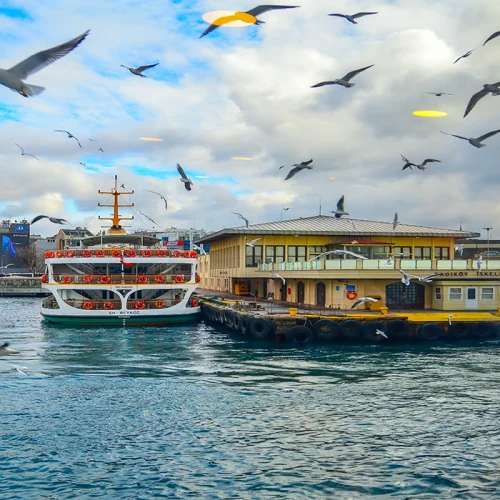
7 Days / 6 Nights
This trip promises not just a journey but an odyssey through the ages, where every moment is a brushstroke on the canvas of your memories.

